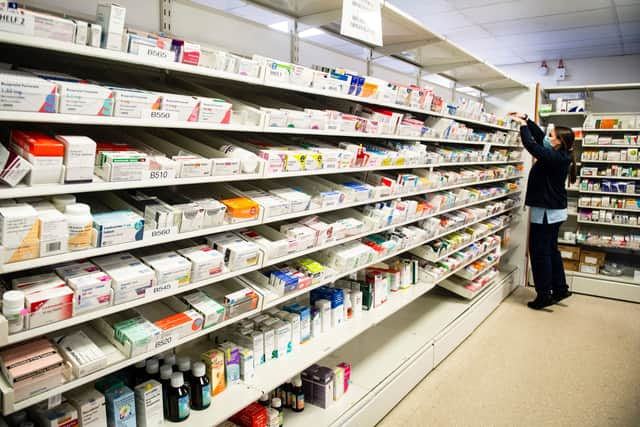Analysing loyalty card data could help doctors spot ovarian cancer cases earlier
and live on Freeview channel 276
By looking at loyalty card data on over-the-counter medication, doctors could spot ovarian cancer cases sooner, according to new research. Data has shown the purchase of pain and indigestion medication was higher in women who later were diagnosed with ovarian cancer.
Researchers at the Imperial College London looked at 300 women, and noted those who purchased the medication had a higher risk of being diagnosed about eight months later. The research is thought to be the first of its kind for cancer.
Advertisement
Hide AdAdvertisement
Hide AdDr James Flanagan, the lead author, said: “The cancer symptoms we are looking for are very common, but for some women they could be the first signs of something more serious.
“As we know early diagnosis of ovarian cancer is key to improving chances of survival, we hope this research can lead to ovarian cancer symptoms being picked up earlier and improve patients’ options for treatment.”
Ovarian cancer is the sixth most common form of cancer in the UK, with around 7,400 diagnosed with the disease and 4,000 deaths every year. The lack of clear early signs means a lot of cases are not diagnosed until the cancer has spread, which reduces the chance of survival.
One in five patients diagnosed with ovarian cancer will not receive treatment due to the disease having gone too far along by the time they are diagnosed. Survival rates for people with early onset ovarian cancer is 93% compared to 13% at later stages.
Advertisement
Hide AdAdvertisement
Hide AdFiona Murphy is an ovarian cancer patient and one of the women involved with the study. She explained that before her diagnosis in 2008, she “lived on Gaviscon for 18 months”.
She said: “It went everywhere with me due to severe acid reflux. Had this been associated with ovarian cancer, I would have had a faster diagnosis, far less surgeries and better fertility options.”


The study used six years of loyalty card data from two UK high street pharmacies of 283 women, of whom 153 had the disease. The data showed that participants with ovarian cancer began noticing symptoms around four and a half months before being diagnosed.
More research on the subject is required to verify the finds, including larger studies on patients in different stages of ovarian cancer. Research can also be made to see if the method can be applied to other forms of cancer such as stomach, bladder and liver cancer.
Advertisement
Hide AdAdvertisement
Hide AdIf the research proves helpful, the hope is to implement a sort of alarm system based on loyalty card purchases which may help catch the disease at an earlier stage, increasing the chance of survival in patients.
Comment Guidelines
National World encourages reader discussion on our stories. User feedback, insights and back-and-forth exchanges add a rich layer of context to reporting. Please review our Community Guidelines before commenting.
